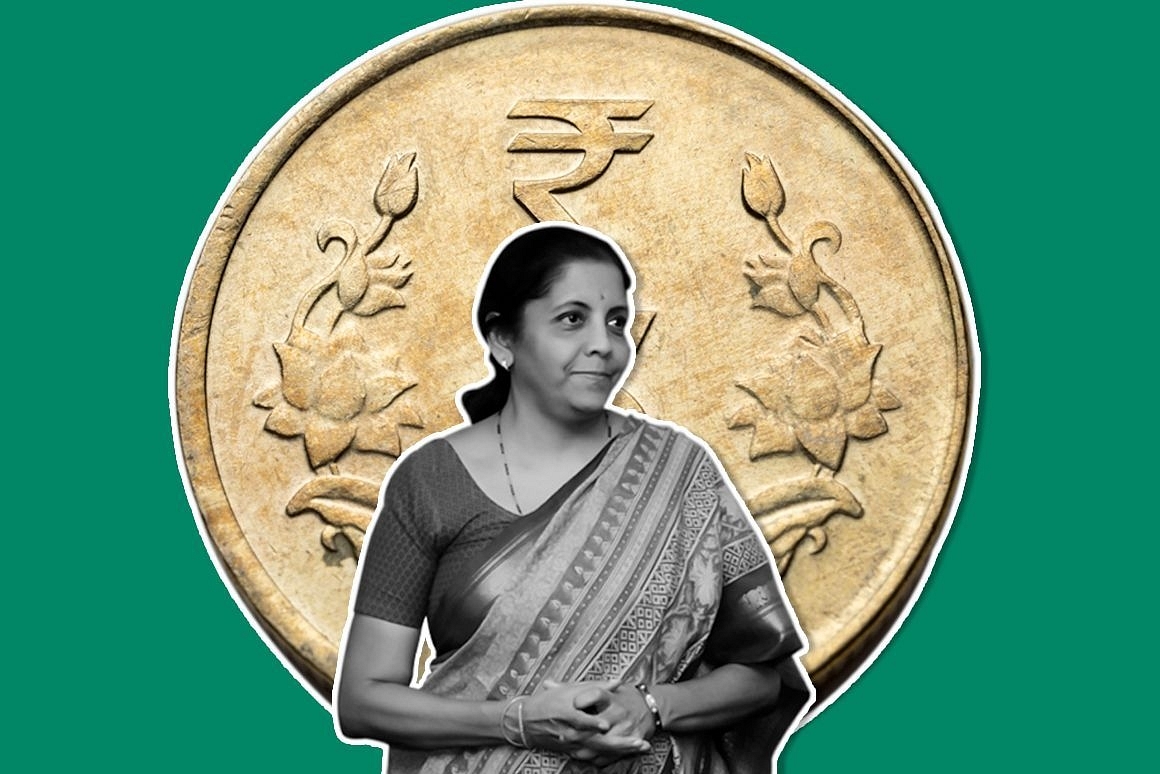Economy
Memo To Finance Minister: Vivad Se Vishwas Should Not Become Another Form Of Tax Terrorism
- Setting unrealistic deadlines for collecting money is a goad to tax terrorism.
- And yes, taxmen should be reasonably incentivised for obtaining settlements, and not penalised for not being able to meet targets.

Finance Minister Nirmala Sitharaman.
One of the big trust-building initiatives undertaken in the recent 2020-21 Union Budget is the Vivad se Vishwas scheme. Under this scheme, all disputed direct tax demands pending at various appellate stages can be settled by waiving of interest and penalties on the amounts due. Since the amounts involved in direct taxes-related litigation has been estimated at over Rs 9 lakh crore, it will be a massive source of revenue in the next fiscal if even 10-15 per cent of the dues are settled.
The problems begin with how the scheme is implemented. Given the acute fiscal pressure this year, taxmen have been told to go all out to get almost everyone to settle. Business Standard reports that the taxman’s target is 100 per cent settlement, with any shortfall being mentioned as an adverse factor for their annual appraisals.
A report in The Economic Times says that even public sector companies with disputes pending in appellate courts are not amused, since they believe that the original demands are often inflated or unwarranted. There is likely to be a lot of truth to this assertion, for demand notices are often driven more by short-term revenue targets rather than commonsense.
The Vivad se Vishwas will engender more mistrust than trust if it is going to be implemented through top-down fiat rather than ground level Vivad.
Three tweaks in the scheme may thus be helpful.
Second, the scheme should not insist on payment of the full original demand even in the case of private sector companies. Instead, both parties (taxman and assessee) should agree to arbitration where the original demand itself is prima facie deemed to be unwarranted or excessive.
This way, there is a reasonable chance that private parties may settle in order to avoid incurring endless legal costs for no net gain in the end. Continuing the litigation should, however, always remain an option. Leeway to pay the settlement amount in instalments, where the amounts involved are large, can also be a good way to lure companies to the scheme.
Third, the timeframe for implementing the scheme is unrealistic, and driven more by fiscal deficit management considerations than anything else. The Finance Minister said in her speech: “Under the proposed ‘Vivad se Vishwas’ scheme, a taxpayer would be required to pay only the amount of the disputed taxes and will get complete waiver of interest and penalty provided he pays by 31st March 2020. Those who avail (themselves of) this scheme after 31st March 2020 will have to pay some additional amount. The scheme will remain open till 30th June, 2020.”
The 31 March deadline is unrealistic, given that we barely have four more weeks in which to settle. It is best to forget this deadline and focus on the 30 June one for complete waiver of interest and penalties, and a later date (perhaps 30 September) for the levy of higher interest charges, and 31 December, with the highest charges for delays.
If you want a non-coercive tax set-up, setting unrealistic deadlines for collecting money is a goad to tax terrorism. And yes, taxmen should be reasonably incentivised for obtaining settlements, and not penalised for not being able to meet targets.
Introducing ElectionsHQ + 50 Ground Reports Project
The 2024 elections might seem easy to guess, but there are some important questions that shouldn't be missed.
Do freebies still sway voters? Do people prioritise infrastructure when voting? How will Punjab vote?
The answers to these questions provide great insights into where we, as a country, are headed in the years to come.
Swarajya is starting a project with an aim to do 50 solid ground stories and a smart commentary service on WhatsApp, a one-of-a-kind. We'd love your support during this election season.
Click below to contribute.
Latest